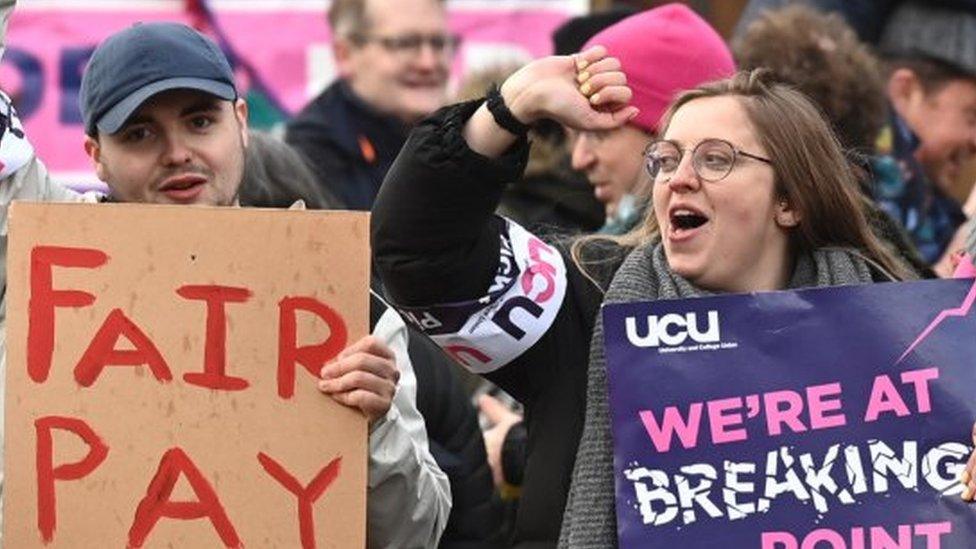Ulster University and Queen's staff begin three-day strike
- Published
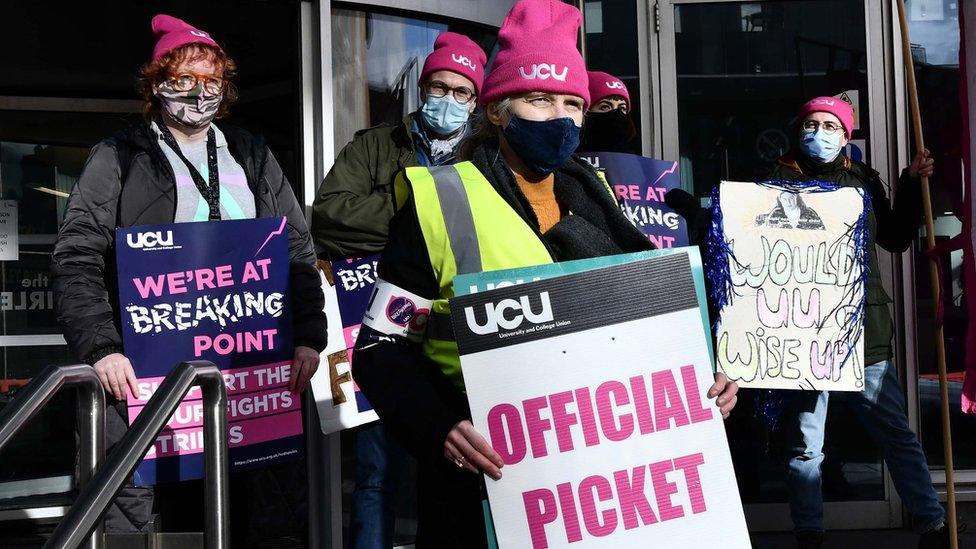
Staff at QUB and UU have launched 10 days of strike action
Some staff at Queen's University Belfast and Ulster University have begun three days of strike action.
The University and College Union (UCU), which represents lecturers and support staff, is taking the action over pay, workloads and pensions.
The walkout will take place over 24, 25 and 30 November.
But the umbrella body Universities UK warned the strike "could cause disruption to students and other members of staff".
The University and College Employers' Association (UCEA) said while it respected employees' right to strike, it was disappointed at the disruption caused.
The union said up to 150 universities across the UK would be affected by the industrial action.
It is not clear how many classes and lectures at Queen's (QUB) and Ulster University (UU) will be cancelled as union members do not have to say in advance if they will strike.
The Open University, which has thousands of students in Northern Ireland, will also be affected.
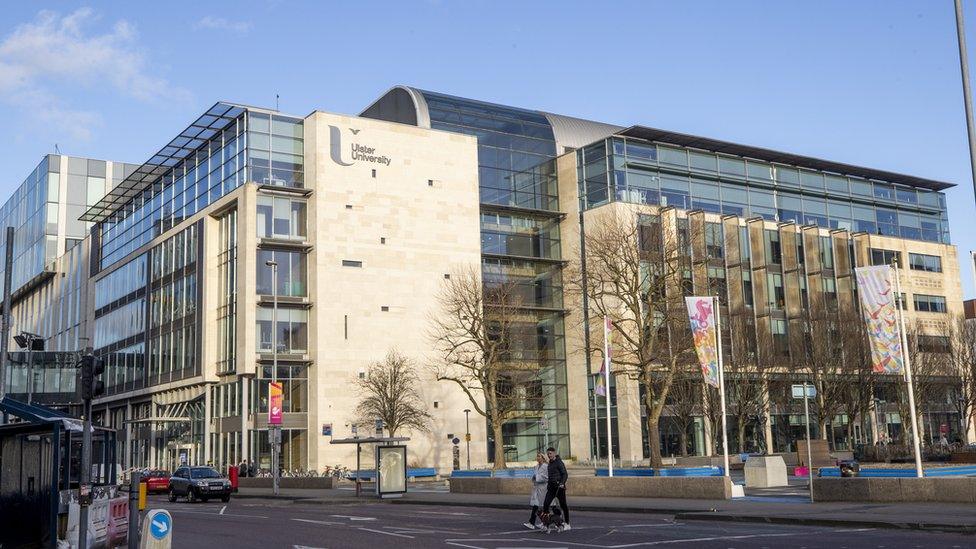
Ulster University said it was working to minimise disruption to students
UCU members were previously out on strike in February and March 2022, and on dates in the previous three years, due to the dispute with employers which has gone on for a number of years.
The union has said the average member "will lose 35% from their guaranteed future retirement income" due to pension changes and also wants an above-inflation pay rise.
At 11%, the cost of living is increasing at its fastest rate in 40 years - largely as a result of rising food and energy prices.

'Solidarity is vital'
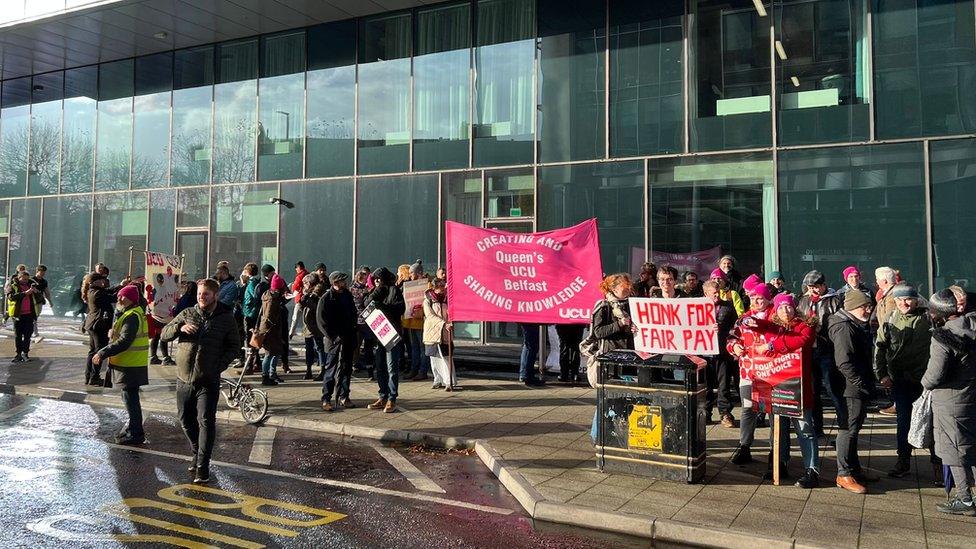
Despite the heavy rain, university staff stood defiant outside Ulster University's Belfast campus as cars beeped their horns during the first day of strikes.
Standing on either side of York Street, chants led by UCU officials rang outside the newly-built campus.
Among the crowd were a group of students waving handmade banners.
Eva Perrott and Tomas Monteiro are undergraduate Fine Art students at Ulster University - they both support the strikes.
"I've seen throughout my degree just how much the tutors are committed to us, so I really wanted to come out and show my support for them," Ms Perrott said.
A decision by the student's union council last year not to directly support the strikes motivated her to come out onto the picket line.
"I think for a university to work, you need to have staff and students working together," she added.
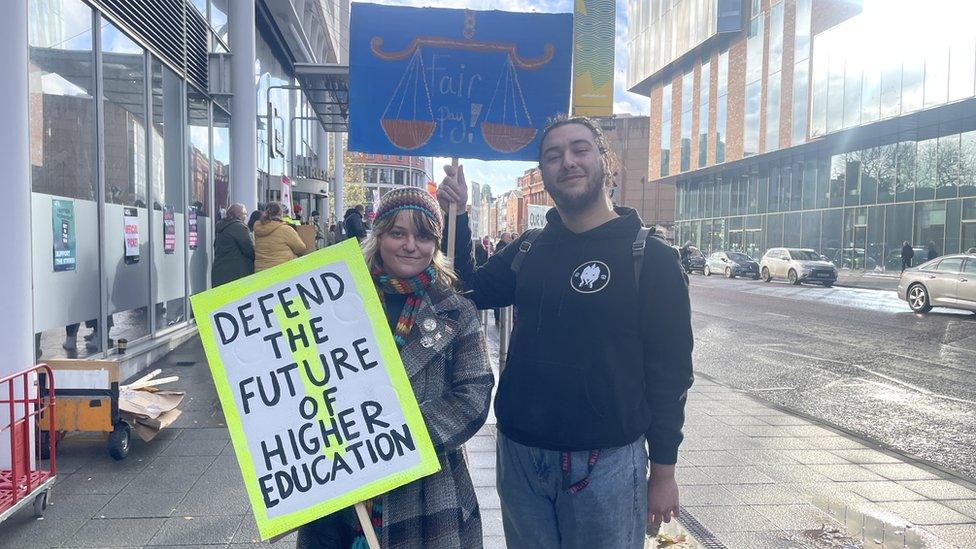
Eva Perrott (L) and Tomas Monteiro (R) are supporting the strikes at Ulster University
Mr Monteiro agreed, adding that at the centre of university is a community.
"I'm out to support the staff as much as I can, and the best way I can is showing up and holding a sign," he said.
University staff will return to the picket lines on Friday and Wednesday over continued disputes about pay, pensions and working conditions.
A committee including trade unions and the Universities and College Employers Association (UCEA) meets and decides on any changes to university workers' pay every year.
It estimates that a median salary for teaching assistant is around £31,900, with lecturers earning around £38,700 per year.
But Ciara McAllister, a PhD candidate and teaching assistant at Queen's University, said this does not reflect reality.
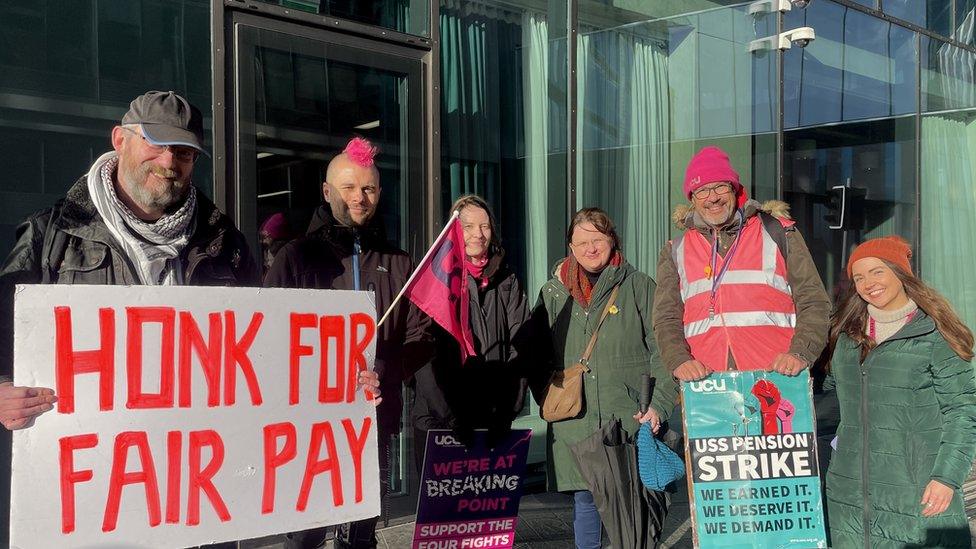
Ciara McAllister (R) says she would have to teach 17
"If I was to earn around £32,000 a year, I would have to teach on 17 modules a week, including two-hour seminars, student support, admin and marking 17 different courses," she said.
Many teaching assistants are on zero-hour contracts, Ms McAllister added.
"The reality of it is that the teachers who are teaching undergraduate students at the minute, who are paying extortionate fees, are getting paid by the hour, are getting paid £20 here and there to provide high level education at a Russell Group University."

In a statement on the UCU action, the president of Universities UK, Prof Steve West, said the university pension scheme remained "one of the most attractive private pension schemes in the country".
"We are saddened to once again be facing industrial action which could cause disruption to students and other members of staff," he continued.
"We understand that strike action is the last thing students want after the disruption they have faced because of the pandemic and from previous industrial action."
However, in a statement posted on social media, the students' union at Queen's said they supported the strike.
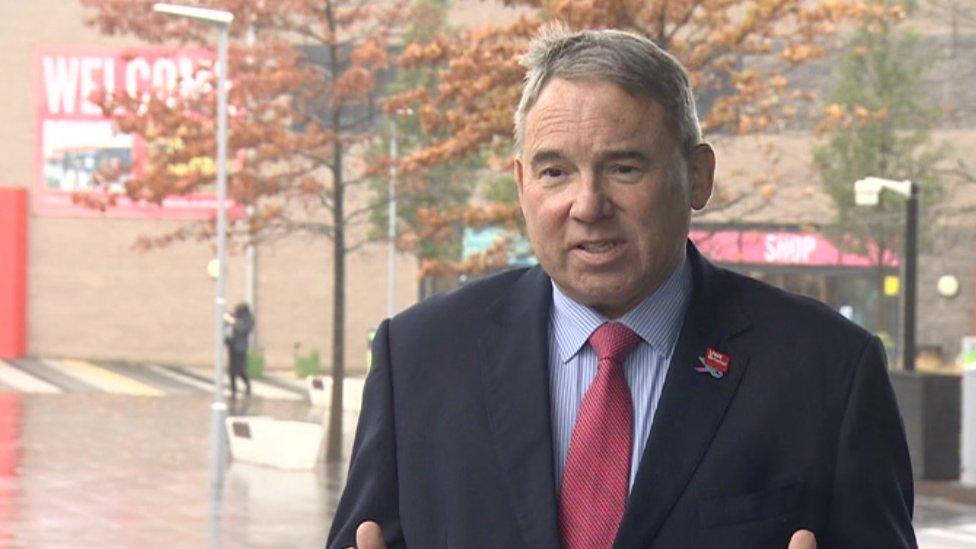
Universities UK president Steve West said the industrial action will cause disruption to students
"Staff conditions, ultimately, impact on students' education and experience," they said.
"When staff are overworked and underpaid, this results in fewer contact hours, less class preparation time, and increased staff absence due to burnout.
"Industrial action is never an easy decision and is always a last resort for staff who lose out on pay for the strike days."
Disruption to services
Raj Jethwa, UCEA chief executive, said there was widespread disappointment across the sector "at the attempts to disrupt higher education institutions by targeting students".
"We respect employees' right to take lawful industrial action, but it is misleading to their members for UCU and the other trade unions to ask them to lose pay in pursuit of an unrealistic 13.6% (RPI +2%) pay demand which would cost institutions in the region of £1.5bn," he added.
"Union leaders must provide their members with a realistic and fair assessment of what is achievable because strike action does not create new money for the sector."
A Queen's spokesperson said that the dispute was a national one "that the university cannot resolve unilaterally".
"Queen's will continue to use its influence to shape and inform the national debate and remains committed to working in partnership with all trade unions at a local level," they said.
"We will be taking all necessary steps to minimise the impact of industrial action on the quality of services and support provided to our students."
An Ulster University spokesperson said it was working to minimise disruption to students' learning.
"Ulster University continues to work with trade union colleagues to achieve those solutions that are possible at a local level in the best interests of all our staff, students and the wider society we serve," the spokesperson added.
- Published9 November 2022
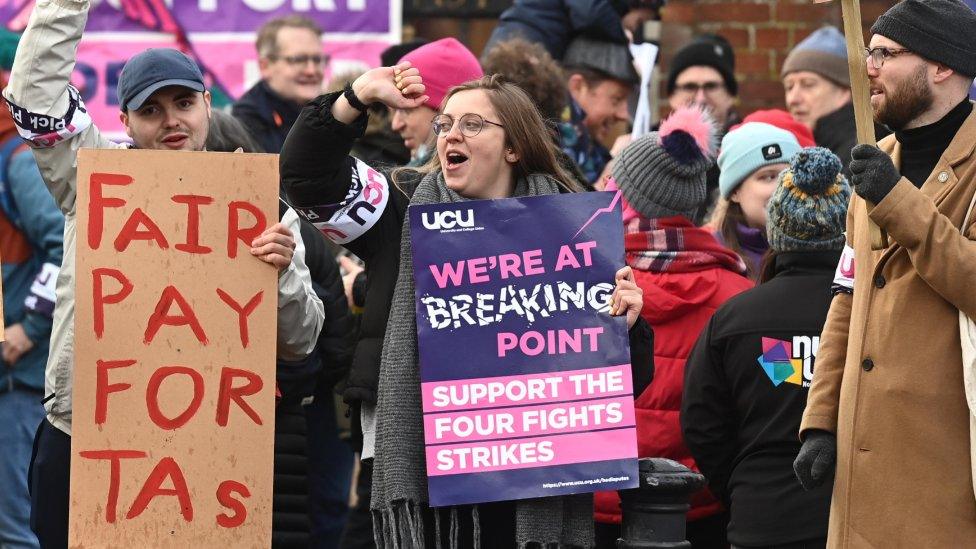
- Published28 January 2022
